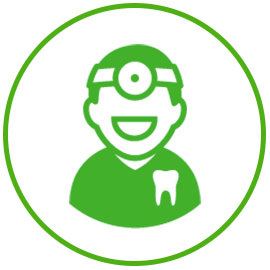Running a well-organized practice is important at all times, but especially when going through the Focused Review process. Focused Review requires additional information to be submitted for specific procedure codes. By making and maintaining good notes and clinical treatment records on ALL performed services, your office will easily be able to provide the necessary documentation during Focused Review.
- When making and maintaining a dental record all information should be clearl
 y documented, and the person responsible for entering the information should sign and date the entry. The information should not be ambiguous or contain many abbreviations. In practices with more than one dental practitioner, the identity of the practitioner rendering the treatment should be clearly noted in the record.
y documented, and the person responsible for entering the information should sign and date the entry. The information should not be ambiguous or contain many abbreviations. In practices with more than one dental practitioner, the identity of the practitioner rendering the treatment should be clearly noted in the record.
- Documenting any patient concerns or issues communicated, proposed treatment or alternative treatment. The record should include a complete description providing details relating to the patient’s treatment including the procedure(s), specialized services, amount of anesthesia, materials/supplies, patients post-operative instructions, etc.
- Electronic record features such as auto-fill and auto-prompts can facilitate and improve documentation, but they can also be misused. The patient’s record must contain documentation showing the differences and the needs of each individual patient for each visit or encounter. Simply copying and pasting previously recorded information on the electronic record without reflecting what occurred during the actual visit is not acceptable.
- Clearly label all diagnostic records, x-ray image(s) and photographs, with the patient’s name, date and area/tooth number(s).
- Always submit claims under the license number and/or Type 1 NPI number of the dentist that rendered the services.
Pre-treatment estimates are optional - every group contract is different, so ensuring a procedure is covered helps patients understand how much they might owe.
These tips are for dentists and the dental team providing helpful information when creating and maintaining dental records. Please review your state’s laws on dental records, the American Dental Association, publication Dental Records or consult with your personal legal counsel or malpractice insurer. These Tips are based in part on questions frequently asked by the dentists and the dental team.